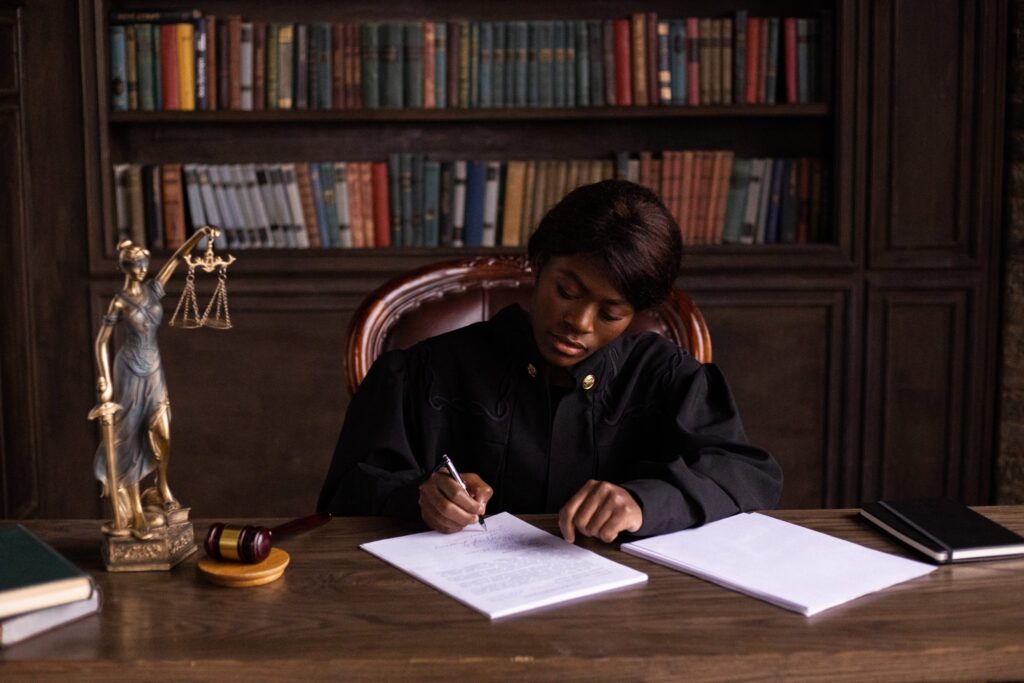Generally, people go to courts to seek justice and remedy for wrongs. Does it really matter who presides over and adjudicates your disputes? The answer is yes. Everything from the procedural rules, rules of conduct, rules about what can be admitted as evidence, and even the tone of the hearing will be different based on who the hearing officer, administrative law judge, or judge is that day.
Who is a Judge?
In the legal sense, a judge is a person authorized by law to preside over court proceedings. The Illinois judiciary has three layers: the Supreme Court, the Appellate Court, and the Circuit Court (trial court). All Illinois judges are chosen in partisan elections and then they run in uncontested, nonpartisan retention elections to serve additional terms. Judges of the Supreme Court and Appellate Court serve ten-year terms; Circuit Court judges serve six-year terms.
Who is a Hearing Officer?
A hearing officer is an attorney who is appointed by the State or another government body including cities and villages to hear administrative cases. As an example, the Illinois Department of Financial and Professional Regulations has rules regarding who can serve as a hearing officer found in the Administrative Code. IDFPR hearing officers are “empowered to conduct the hearing, question witnesses, make rulings on motions and objections, or to submit suggested Findings of Fact and Conclusions of Law to the Committee at the conclusion of the case.”
Hearing officers either have a contract with the government body or they are full time employees of the government body.
Hearing officers are also known as administrative law judges.
When a Judge may be Needed After a Hearing Officer
Once a hearing officer makes a final determination on a matter, the losing party can follow procedural rules to appeal that decision to a judge in Circuit Court. For instance, regarding the Illinois Department of Insurance, a party who is not satisfied with a ruling of a hearing officer may apply within 10 days from the day of the judgment for a rehearing and then an appeal. The rehearing will be presided over by the Director of the Department, but a judge will hear the appeal as it will be an actual lawsuit in Circuit Court.
Hearing Officers, Administrative Law Judges, and the Procedural Rules Matter
Do not be fooled by titles. While a hearing officer does not have the full power of a Circuit Court judge, they can dramatically affect a corporation or an individual. Appeals to the Circuit Court can be costly and time consuming. Procedural rules for administrative hearings are very important to follow. If an individual misses a deadline for a re-hearing or appeal to the Circuit Court, that right vanishes and the individual will be stuck with the hearing officer’s decision. While some people choose to go to agency hearings unrepresented with the intent to save money, a good attorney will not only increase chances of success with the hearing officer or administrative law judge, the attorney will also make sure all procedural rules are followed and the client does not give up his or her rights to appeal decisions.
Jordan Matyas is an Illinois attorney with a practice focus in Illinois administrative law, including matters before the Illinois Department of Financial and Professional Regulation.



